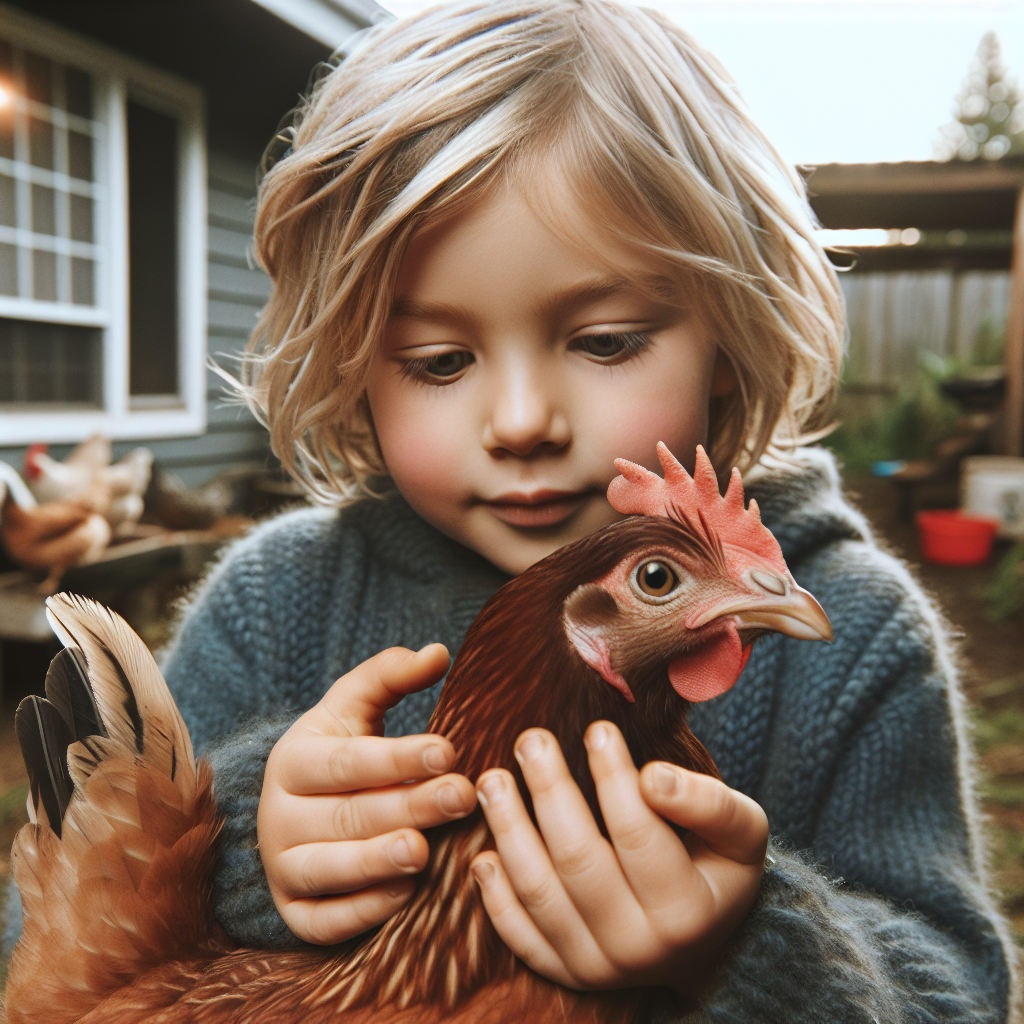Taking care of backyard chickens requires attention to their health and hygiene practices. Ensuring your feathered friends are well taken care of involves implementing essential practices for their overall well-being. From maintaining clean living spaces to regular health check-ups, these practices are crucial for keeping your backyard chickens healthy, happy, and thriving. Discover the key health and hygiene practices necessary to give your flock the care they deserve.
1. Housing and Shelter
1.1 Coop Design and Maintenance
Creating a suitable coop design is crucial for providing a safe and comfortable living space for your backyard chickens. Make sure the coop is well-ventilated, secure from predators, and spacious enough for your chickens to move around freely. Regular maintenance of the coop is also essential, as it helps prevent the buildup of dirt, pests, and bacteria that can potentially harm your chickens’ health.
1.2 Bedding and Litter
Choosing the right bedding and litter for your chicken coop is essential to maintain cleanliness and provide a comfortable environment for your chickens. Opt for materials such as straw, wood shavings, or sand, which are absorbent and easy to clean. Regularly remove soiled bedding and replace it with fresh, clean material to prevent the accumulation of bacteria and odors.
1.3 Ventilation
Proper ventilation is crucial in a chicken coop to ensure good air quality and prevent the buildup of harmful gases. Make sure your coop has adequate ventilation openings, such as windows or vents, to allow fresh air to circulate. Proper airflow helps regulate temperature, reduce moisture, and minimize the risk of respiratory diseases.
1.4 Lighting
Lighting plays an important role in the overall health and well-being of your backyard chickens. Ensure that your coop has appropriate lighting to mimic natural daylight. This helps regulate their circadian rhythm and promotes proper egg production. Aim for at least 14-16 hours of light per day, either through natural sunlight or artificial lighting.
1.5 Nesting Boxes
Providing suitable nesting boxes for your chickens is essential for their comfort and the protection of their eggs. Nesting boxes should be clean, dry, and lined with soft bedding material. Place them in a quiet area of the coop away from high traffic areas. This provides a safe and secure space for your chickens to lay their eggs, reducing stress and preventing egg damage.
2. Clean Water Supply
2.1 Fresh Water
Providing your backyard chickens with a constant supply of fresh, clean water is essential for their health and hydration. Ensure that the water containers are filled daily and placed in a location where they are easily accessible to your chickens. Regularly check the water to ensure it is clean and free from debris or bacteria.
2.2 Water Container Sanitation
Regularly clean and sanitize the water containers to prevent the growth of harmful bacteria or algae. Use mild detergent and hot water to clean the containers thoroughly, making sure to rinse them well to remove any residual soap. Additionally, consider using water containers with narrow openings or automatic waterers to minimize the risk of contamination.
2.3 Adequate Water Supply
Make sure your chickens have access to an adequate supply of water at all times. During hot weather, chickens may consume more water to stay hydrated, so monitor their water consumption and refill as needed. Consider providing water sources both inside the coop and in the outdoor run to ensure easy access for your chickens.
3. Nutritious and Balanced Diet
3.1 Quality Feed
Offering your backyard chickens a high-quality and nutritionally balanced feed is essential for their overall health and egg production. Choose a feed specifically formulated for the needs of laying hens, as it provides the necessary protein, vitamins, and minerals. Additionally, ensure the feed is fresh and stored in a dry and cool place to maintain its nutritional integrity.
3.2 Supplemental Treats
While a nutritious feed is the mainstay of your chickens’ diet, supplemental treats can be provided in moderation. Treats such as fruits, vegetables, and scratch grains can add variety to their diet and serve as a source of entertainment. However, it is important to avoid overfeeding treats, as they may not provide a complete and balanced nutritional profile.
3.3 Feeding Schedule
Establish a consistent feeding schedule for your backyard chickens to promote healthy eating habits. Provide feed in the morning, allowing ample time for your chickens to eat before the onset of the day. Avoid leaving feed out overnight, as it can attract pests or spoil. Regularly monitor your chickens’ feed consumption to ensure they are maintaining a healthy weight.
4. Regular Health Check-ups
4.1 Observing Chicken Behavior
Regularly observe your backyard chickens’ behavior to detect any signs of illness or distress. Pay attention to changes in appetite, drinking habits, mobility, and social interactions. Any abnormal behavior or persistent symptoms should be promptly addressed by a veterinarian to ensure early detection and treatment of potential health issues.
4.2 Physical Examination
Perform regular physical examinations of your chickens to check for any abnormalities. Gently handle them to check for signs of injury, parasites, or unusual growths. Inspect their feathers, skin, eyes, beak, and legs for any signs of infection or disease. Regular physical examinations help you maintain a close eye on your chickens’ health and well-being.
4.3 Parasite Prevention
Implement a regular parasite prevention program to protect your backyard chickens from fleas, ticks, mites, and worms. Consult with a veterinarian to determine the appropriate preventive measures for your specific location and flock. Treatments may include topical applications, oral medications, or natural remedies. Regularly inspect your chickens and their living environment for signs of infestation.
4.4 Vaccinations
Consult with a veterinarian to determine if vaccinations are necessary for your backyard chickens. Vaccinations can help prevent common diseases such as Newcastle disease, infectious bronchitis, and Marek’s disease. Follow the recommended vaccination schedule to ensure your chickens receive proper protection against potential health threats.
4.5 Quarantine
When introducing new chickens to your existing flock, it is essential to quarantine the newcomers for a period of time. This helps prevent the spread of potential diseases or parasites. Keep the new chickens isolated from the existing flock and closely monitor their health during the quarantine period. Only integrate them with the rest of the flock once you are confident they are healthy and disease-free.
5. Clean and Comfortable Environment
5.1 Regular Cleaning
Maintaining a clean coop and surrounding environment is crucial for the health and well-being of your backyard chickens. Regularly remove soiled bedding, droppings, and any debris from the coop. Clean and disinfect the coop periodically to prevent the buildup of bacteria and odors. Pay attention to areas where pests may hide, such as cracks, crevices, or nesting boxes.
5.2 Waste Management
Proper waste management is essential to minimize the risk of disease transmission and ensure a clean environment for your backyard chickens. Consider implementing a composting system for chicken waste, as it provides a natural and environmentally friendly way to manage the waste. Additionally, regularly remove and dispose of waste in a proper manner to prevent odors and pest infestations.
5.3 Indoor and Outdoor Space
Provide your backyard chickens with adequate indoor and outdoor space to promote their physical and mental well-being. Ensure the coop is spacious enough for them to move around comfortably, with approximately 3-4 square feet per chicken. In addition to the coop, provide a secure outdoor run or pasture area where your chickens can forage, dustbathe, and engage in natural behaviors.
6. Proper Egg Handling
6.1 Collecting Eggs
Collecting eggs from your backyard chickens should be done regularly to ensure egg freshness and prevent breakage. Check the nest boxes daily and collect eggs promptly to avoid them being trampled or soiled. Handle the eggs gently, as rough handling can cause cracks or damage the protective bloom on the shell.
6.2 Cleaning and Storing Eggs
If an egg is soiled, gently wipe it clean with a damp cloth, but avoid using soap or chemicals as it can remove the protective bloom. It is best to leave the eggs unwashed until just before use, as the natural protective coating helps preserve their freshness. Store eggs in a cool and dry place, preferably in a refrigerator, with the pointed end down to help maintain their quality.
6.3 Egg Quality Assessment
Regularly assess the quality of your backyard chicken eggs to ensure they meet your desired standards. Look for signs of abnormalities, such as irregular shapes, thin shells, or unusual colors. A healthy chicken’s egg should have a strong shell, a well-formed yolk, and a clear, viscous albumen. If you notice any consistent issues with egg quality, consult with a veterinarian to rule out any underlying health concerns.
7. Disease Prevention
7.1 Biosecurity Measures
Implementing biosecurity measures is crucial in preventing the introduction and spread of diseases within your backyard chicken flock. Maintain strict hygiene practices, such as regular handwashing, disinfecting equipment, and preventing contact between your chickens and wild birds or other animals. Limit visitors to your flock and avoid attending poultry shows or exhibitions, as they can be potential sources of disease transmission.
7.2 Pest Control
Effective pest control is vital in maintaining the health and hygiene of your backyard chicken coop. Regularly inspect the coop for signs of pests such as mites, lice, or rodents, and take appropriate measures to eliminate them. Use safe and effective pest control methods, such as diatomaceous earth, natural sprays, or professional pest control services, to keep your chickens and their environment free from pests.
7.3 Avoidance of Contaminated Areas
Keep your backyard chickens away from contaminated areas to minimize the risk of disease transmission. Avoid allowing them access to stagnant water sources, areas with wild bird droppings, or places where pests are known to inhabit. Regularly inspect and maintain their outdoor run or pasture area to ensure it is clean and free from potential hazards.
8. Stress Reduction
8.1 Provide Entertainment and Enrichment
Reducing stress in your backyard chickens is essential for their overall well-being. Provide entertainment and enrichment activities, such as hanging treats, providing dustbathing areas, or installing perches and roosts. These activities allow your chickens to engage in natural behaviors, reducing boredom and stress.
8.2 Minimize Noise Levels
Excessive noise can cause stress and anxiety in backyard chickens. Minimize loud noises, such as construction work, machinery, or fireworks, in the vicinity of the coop. Provide a quiet and calm environment to promote a sense of security and well-being among your chickens.
8.3 Limit Handling and Disturbances
While it can be tempting to handle and interact with your backyard chickens frequently, excessive handling and disturbances can cause stress. Minimize handling to when necessary, such as during health checks or when performing specific tasks. Allow your chickens to have their personal space and respect their natural behaviors to promote a stress-free environment.
9. Proper Waste Disposal
9.1 Composting
Implementing a composting system for chicken waste is an environmentally friendly way to manage the waste generated by your backyard chickens. Composting allows organic materials, such as chicken droppings and bedding, to break down naturally into nutrient-rich soil. Proper composting practices help reduce waste volume, control odors, and provide a valuable resource for gardening.
9.2 Feces and Manure Management
Proper management of feces and manure is essential for maintaining a clean and healthy environment for your backyard chickens. Regularly remove droppings from the coop and the outdoor run to prevent the buildup of bacteria and odors. Consider using bedding materials that help absorb moisture and control odor, such as straw or wood shavings. Proper disposal of chicken manure can also contribute to sustainable gardening practices.
10. Knowledge and Education
10.1 Understanding Chicken Behavior
Gaining knowledge and understanding of chicken behavior is crucial for providing appropriate care and addressing any potential issues promptly. Learn about their natural behaviors, social hierarchy, communication, and signs of illness. This knowledge enables you to make informed decisions, identify problems early on, and ensure the overall well-being of your backyard chickens.
10.2 Continuous Learning and Research
Backyard chicken care is a continuously evolving field, and staying up-to-date with the latest information and research is crucial. Make a habit of continuous learning by reading books, attending workshops, or joining online forums and community groups. This allows you to enhance your knowledge, exchange ideas and experiences with other chicken owners, and adapt your practices to ensure the best care for your backyard chickens.
In conclusion, implementing proper health and hygiene practices for backyard chicken care is essential to ensure the well-being and longevity of your chickens. From providing suitable housing and nutrition to regular health check-ups and disease prevention, each aspect plays a vital role in maintaining a healthy flock. By following these guidelines and continually educating yourself, you can establish a strong foundation for a successful and rewarding backyard chicken-keeping experience.




